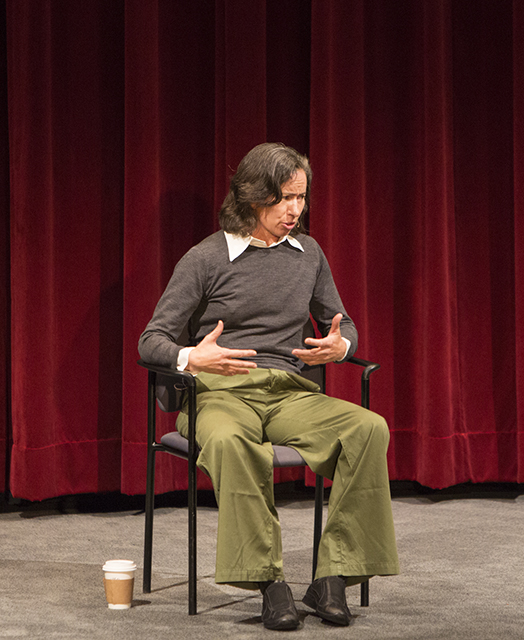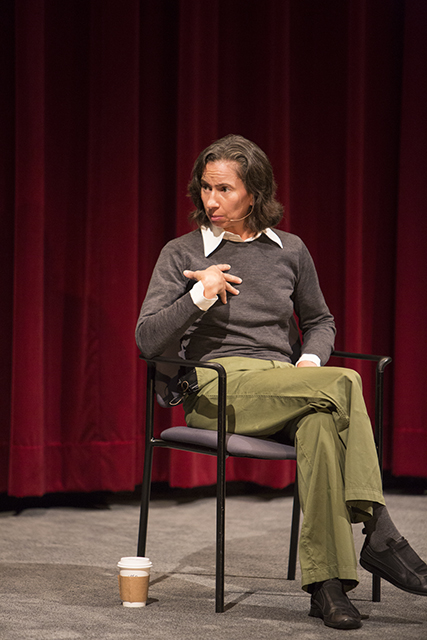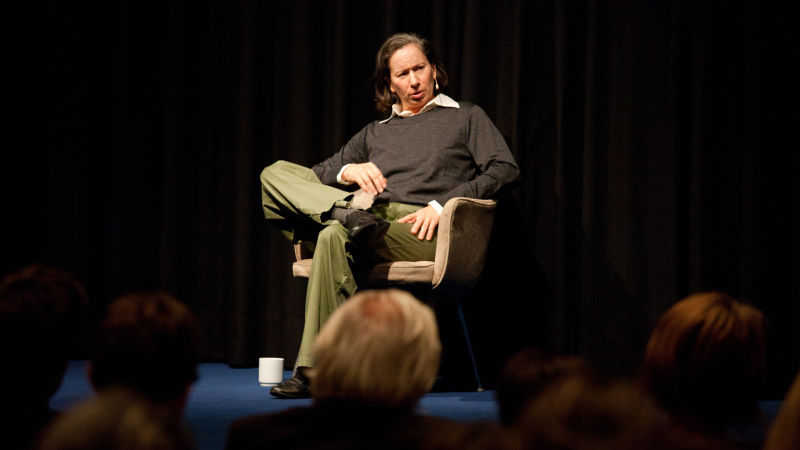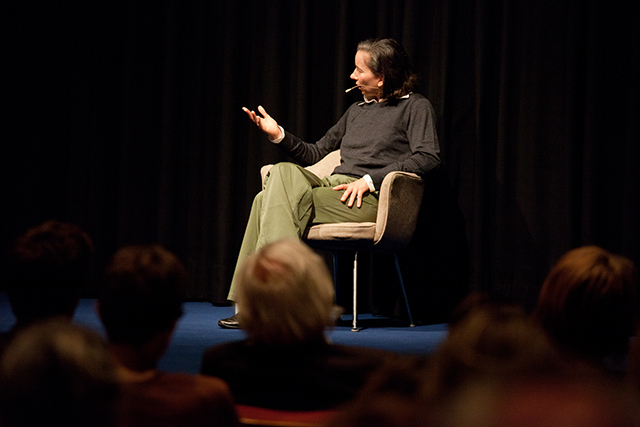Andrea Fraser isn’t afraid to make you uncomfortable. As an artist whose practice includes institutional critique, she’s known for pointing out unconscious biases and capitalist motivations in art museums.
Her more notorious works over the past decade merge art-world commentary with issues of gender: in Official Welcome (2003), she made a speech parodying art-world personalities while matter-of-factly removing her clothes; in Untitled (2003), the artwork required the purchasing collector make a sex tape with her, which then became the work itself. Using her body as her primary medium, Fraser’s performances dive deep into complex topics.

Men on the Line: Men Committed to Feminism, KPFK 1972 (2012), produced by the Wattis Institute in collaboration with the Pacifica Radio Archives, performed at San Francisco’s Brava Theater on Oct. 30, likewise follows suit, but it’s a comparatively tame piece — Fraser remains fully clothed. In this one-woman show, she recreates a public radio broadcast of four men discussing their relationship to feminism in 1972, during the height of the second-wave feminist movement.
In a packed house on Friday, the performance started abruptly when Fraser entered the stage. She wore fairly “masculine” or unisex clothing, and the stage was empty except for a chair. The original radio production’s introduction played, beginning with John Lennon’s “Working Class Hero.” Then, a clip of feminist artists Judy Chicago and Isabel Welsh discussing internalized stereotypes and gender role power dynamics played. In 2015, Fraser sat listening, nodding thoughtfully.
When the clip ended, Fraser sprang into character as self-proclaimed “host/participant” Everett Frost, who introduced the three other men in attendance: Bob Krueger, Lee Christie and Jeremy Shapiro. To represent each man, Fraser altered her speech and body language. Depending on who was speaking, she leaned to the side or sat upright, feet firmly planted on the ground or legs crossed in a wide, manspreading kind of way.

The initial shifts from each character were amusingly drastic, facilitated by how entirely Fraser embodied the roles. Her facial expressions seamlessly mirrored the voices: a little smug, then self-conscious and uncertain, complete with sighs, chuckles and uncomfortable pauses.



